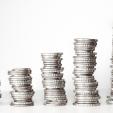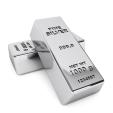Gold price could benefit from Swiss vote
Zurich (Oct 29) Switzerland enjoys a rather more direct system of democracy than we do.
If you want some kind of constitutional change, and you can find 100,000 people prepared to support your proposal with their signature, you can get a referendum called.
If the majority then vote in your favour, the matter is then referred to the 26 cantons – the administrative regions (similar to our counties) – and if the majority too vote yes, you’ll get the change you were agitating for.
There’s a referendum coming up next month that could have huge ramifications for gold investors.
Private car ban
Some of the recent Swiss referendums have made me smile.
In 2003, there were demands that private cars be banned from all public places (including roads) on certain Sundays of the year.
In 2012, there was an attempt to regulate book prices so that books would become “more affordable to all”.
Neither referendum was voted through by the Swiss. But over the last 25 years, some surprising initiatives have been voted into the constitution. Referendums have led to a national holiday on 1 August, government-approved heroin being given to addicts and the banning of the building of minarets (Islamic-style towers).
On 30 November, the Swiss will be voting whether to “Save our Swiss gold”.
What’s behind this movement?
Rather than dive straight in and tell you what the issues to be voted on are, let me give you some background first.
After the USA abandoned Bretton Woods in 1971, Switzerland was the last nation left on a gold standard. It seems Switzerland had to sever its golden ties if it wanted to join the International Monetary Fund, and in 1999, the decision to leave the gold standard was made. But only just – 12 of the 26 cantons voted against.
It was, I suppose, the final blow in the long, worldwide process to demonetise gold, which continued through the second half of the 20th century.
The Swiss decision came at around the same time as Gordon Brown sold two thirds of Britain’s gold at the bottom of the market. Swiss gold holdings in 1999 were about 2,600 tonnes – about 8% of global central bank gold reserves at the time. Even though gold was trading below $300 an ounce, that gold, according to the World Gold Council, amounted to almost 40% of Swiss foreign exchange reserves.
Over the next five years, Switzerland sold some 1,550 tonnes (‘one tonne a day’ as the ‘yes’ campaign points out) – at between $300 and $500 an ounce. To put that into some kind of context, Gordon Brown ‘only’ sold 390 tonnes.
The proceeds of the sales were then distributed amongst the cantons and spent by them (no wonder they voted yes, say the cynics).
Now Switzerland has some 1,040 tonnes. Even with the gold price at $1,230 an ounce, that gold amounts to just 8% of its foreign exchange reserves.
“Save our Swiss gold” is, basically, a reaction to the fact that Switzerland has been an enormous dishoarder of gold, as this next chart from Grant Williams shows.
Source: MoneyWeek













